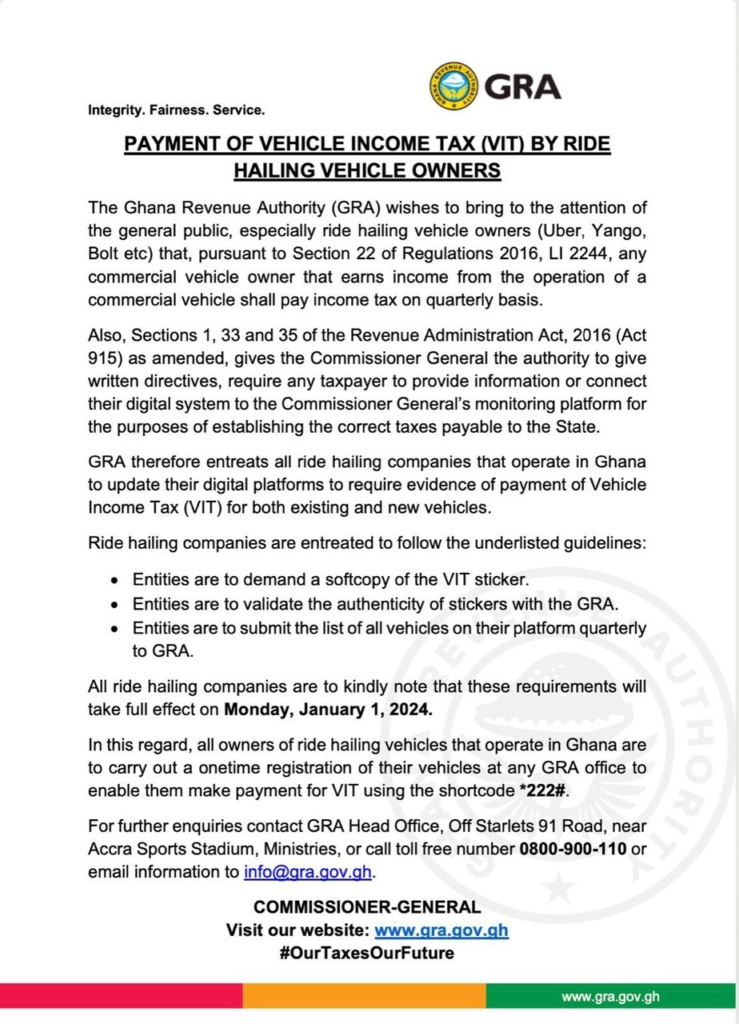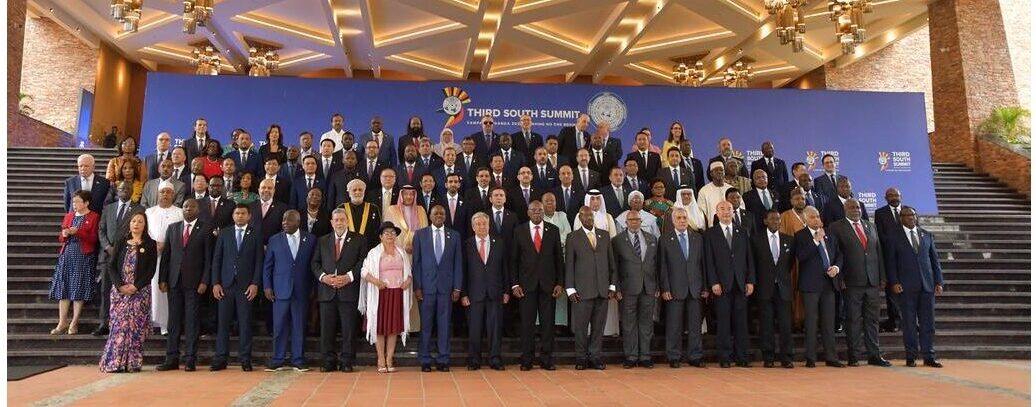
By Nii Okantey ADJETEY
The global economy has become increasingly vulnerable to systemic shocks ranging from pandemics and climate-related disasters to geopolitical conflicts and technological disruptions. Each crisis lays bare the fragility of national fiscal systems and the inadequacy of traditional tax policy frameworks to cushion economies against distress.
The COVID-19 pandemic reinforced this reality, as nations scrambled to deploy emergency fiscal measures to sustain livelihoods and maintain macroeconomic stability. As the world confronts ongoing uncertainties, rethinking tax policy is no longer optional. It is essential for building economic resilience and sustainable recovery mechanisms.
The effectiveness of a government’s crisis response depends largely on the strength, flexibility, and equity of its tax system. Countries with efficient tax administrations and diversified revenue bases weather shocks better than those reliant on narrow or volatile revenue sources. Thus, a crisis-resilient tax policy must not only mobilize sufficient revenue but also adapt to changing economic realities while maintaining public trust.
The Lessons of the Pandemic: Fiscal Response and its Tax Dimensions
The COVID-19 pandemic triggered one of the most expansive fiscal responses in modern history. In the United States, for instance, Congress enacted the Coronavirus Aid, Relief, and Economic Security (CARES) Act in 2020, injecting over $2 trillion into the economy. This included tax rebates to households, payroll tax deferrals for businesses, and the Paycheck Protection Program (PPP) loans: measures designed to sustain employment and consumption.
While these interventions were successful in cushioning short-term shocks, they also exposed structural weaknesses. Many relief programs were temporary, heavily debt-financed, and unevenly distributed. The reliance on emergency stimulus rather than pre-existing automatic fiscal stabilizers indicated that the U.S. tax system and indeed many others globally were not adequately designed to respond effectively to crises.
Similarly, developing countries faced greater challenges due to limited fiscal capacity. For example, in Sub-Saharan Africa, tax-to-GDP ratios remain below 20%, compared to an OECD average of over 34%. Ghana, for instance, experienced significant revenue shortfalls during the pandemic, as lockdowns suppressed VAT and corporate tax collections. These experiences reveal a pressing need to strengthen domestic revenue systems that can support emergency responses without undermining fiscal sustainability.
Rethinking the Architecture of Tax Policy
To build resilience, tax policy must evolve from being reactive to being structurally adaptive. This involves three critical dimensions: revenue diversification, flexibility in administration, and equity in burden-sharing.
Diversification of Revenue Sources
Heavy dependence on consumption and corporate taxes makes economies vulnerable during downturns. When businesses close and spending declines, tax receipts fall sharply. A resilient tax system must balance its revenue sources by strengthening property taxes requirements, environmental levies, and digital economy taxation.
For example, the OECD/G20 Inclusive Framework on Base Erosion and Profit Shifting (BEPS) has proposed a global minimum tax, targeting multinational corporations that shift profits across borders. Such reforms can help stabilize revenue by reducing tax avoidance and ensuring that digital giants contribute their fair share.
In developing countries, expanding property taxation and improving land valuation systems can provide sustainable local revenue sources. Additionally, environmental taxes such as carbon pricing can serve a dual purpose: generating revenue and promoting climate resilience.
Flexibility and Automatic Stabilizers
Rigid tax systems often delay fiscal responses. Automatic stabilizers, such as progressive income taxes and unemployment benefits, help moderate economic cycles without the need for new legislation. During booms, they restrain demand; during recessions, they support it.
To strengthen automatic stabilizers, policymakers should embed temporary tax relief mechanisms that activate during downturns. For instance, countercyclical tax credits for small businesses could automatically reduce tax liabilities when GDP growth falls below a threshold. Similarly, flexible deferral mechanisms for VAT and payroll taxes can preserve liquidity for firms during crises without necessitating new emergency laws.
Equity and Inclusivity in Taxation
Economic crises often exacerbate inequality. The tax system must therefore protect vulnerable populations while maintaining fairness in burden distribution. Progressive taxation, targeted tax credits, and conditional subsidies can mitigate inequality while sustaining aggregate demand.
The pandemic showed that low-income workers are impacted the most by economic disruptions. Tax credits like the Earned Income Tax Credit (EITC) in the U.S. or targeted consumption subsidies in emerging economies can ensure that relief reaches those most affected. Fairness is therefore not just a moral imperative but also a vital requirement for maintaining public compliance and trust in government institutions.
Strengthening Tax Administration and Digital Infrastructure
Policy reforms alone are insufficient without strong tax administration. The digital transformation of tax systems presents a critical opportunity to enhance compliance, efficiency, and transparency.
Countries such as Estonia and Singapore have demonstrated how technology can revolutionize tax administration. Estonia’s e-Tax system, for instance, allows over 95% of tax returns to be filed online, with real-time analytics that flag anomalies and reduce fraud. In Ghana, the rollout of the Integrated Tax Application and Preparation System (iTaPS) by the Ghana Revenue Authority (GRA) aims to improve filing efficiency and expand the tax net.
Digitalization also supports crisis response by providing real-time data to inform fiscal decisions. Governments can track revenue fluctuations, identify distressed sectors, and target relief more effectively. Also, investments in cybersecurity, data privacy, and digital literacy are essential to prevent misuse and ensure taxpayer confidence.
Policy Coordination and International Collaboration
Crises transcend borders, and so must fiscal solutions. The COVID-19 pandemic revealed how globally interconnected economies are. Coordinated tax policy, particularly in curbing profit shifting and illicit financial flows, is critical for protecting domestic revenue bases.
Organizations like the International Monetary Fund (IMF) and World Bank, over the years, have emphasized the need for global fiscal compacts that promote debt transparency and fair taxation. Developing nations often lose substantial revenue through transfer pricing abuses and tax treaty loopholes. Strengthening international cooperation, standardizing tax rules, and fostering capacity-building programs will ensure that no country faces a crisis with a structurally weakened revenue system.
Actionable Pathways to Fiscal Resilience
To ensure that tax policy supports resilience rather than amplifies vulnerability, governments should prioritize the following:
Institutionalize Countercyclical Tax Measures
Governments should embed automatic fiscal mechanisms within their tax codes that activate during economic downturns and deactivate during periods of growth. Countercyclical measures such as temporary tax credits for small businesses, deferred payment schemes for payroll and VAT obligations, or income-based relief thresholds can help maintain business liquidity and household consumption during crises.
For instance, the United States’ automatic stabilizers, such as unemployment insurance and progressive income taxation, moderated the worst effects of the COVID-19 recession without the need for new legislative approval. Embedding similar automatic responses can make fiscal systems more agile and less politically constrained during emergencies.
Broaden the Tax Base
A resilient tax system relies on a diversified and inclusive revenue base. Expanding property taxation, implementing environmental taxes, and formalizing segments of the informal economy can reduce dependency on volatile revenue sources like consumption or corporate income taxes.
In many developing economies, informal sectors represent a significant share of GDP but remain largely untaxed. Simplified tax regimes, digital registration platforms, and incentives for voluntary compliance can bring these sectors into the formal tax net. Additionally, environmental levies such as carbon pricing not only broaden the base but also promote sustainable economic behavior.
Leverage Technology
Digital transformation is central to modern tax administration. Governments should invest in advanced e-filing systems, data analytics, and automation tools that enhance compliance monitoring and revenue forecasting.
Technologies like artificial intelligence can detect discrepancies in tax filings, while real-time data dashboards help fiscal authorities respond promptly to revenue shocks. Estonia’s fully digitized e-Tax platform and Ghana’s Integrated Tax Application and Preparation System (iTaPS) are leading examples of how technology can strengthen efficiency and transparency. Digital infrastructure also allows for targeted relief distribution during crises, ensuring assistance reaches those most in need.
Enhance Transparency and Oversight
Transparency and accountability in fiscal operations are vital for public trust, especially during emergencies. Governments should strengthen public financial management frameworks, including real-time expenditure tracking and independent auditing of relief programs.
Robust oversight mechanisms prevent the misuse of funds and improve the efficiency of crisis responses. Independent audit institutions and parliamentary budget offices can play critical roles in ensuring that emergency fiscal measures achieve their intended outcomes. When taxpayers see that resources are well managed, voluntary compliance and civic engagement increase, further reinforcing fiscal stability.
Foster Equity
Economic crises often widen the gap between high- and low-income groups. A resilient tax system must therefore ensure that relief and obligations align with taxpayers’ income capacity. Progressive taxation, targeted tax credits, and social transfers can reduce inequality while sustaining demand in the economy.
For instance, expanding earned income tax credits or offering temporary consumption vouchers to lower-income households can stabilize spending during recessions. At the same time, fair corporate taxation ensures that large and profitable entities contribute equitably to national recovery efforts. Equity fosters social cohesion and strengthens the legitimacy of the fiscal system.
Promote International Collaboration
In an interconnected world, fiscal resilience depends on cross-border cooperation. Governments must work together to curb profit shifting, tax evasion, and illicit financial flows that undermine domestic revenue capacity. Initiatives such as the OECD/G20 Inclusive Framework on Base Erosion and Profit Shifting (BEPS) and the Global Minimum Tax Agreement represent steps toward fairer global taxation.
Participation in these frameworks ensures that multinational corporations and digital platforms contribute appropriately to the jurisdictions in which they operate. Beyond taxation, international collaboration also supports technical assistance, data sharing, and policy coordination: key elements in preparing for future global shocks.
Conclusion: Building fiscal systems that endure
Economic crises are inevitable, but fiscal fragility is not. A forward-looking tax policy should serve as both a shield and a lever. That is, a shield against economic shocks and a lever for sustainable growth. Governments that align their tax systems with the principles of flexibility, fairness, and foresight will not only manage crises more effectively but also foster long-term prosperity.
As the world faces uncertainties of future pandemics, climate transitions, and geopolitical disruptions, resilience will not be built in the heat of the next crisis; it must be designed today. The time to rethink tax policy is now.
The writer is a seasoned tax professional and economic scholar with advanced expertise in fiscal policy and financial economics.
The post Rethinking tax policy for resilience in times of crisis appeared first on The Business & Financial Times.
Read Full Story

















Facebook
Twitter
Pinterest
Instagram
Google+
YouTube
LinkedIn
RSS